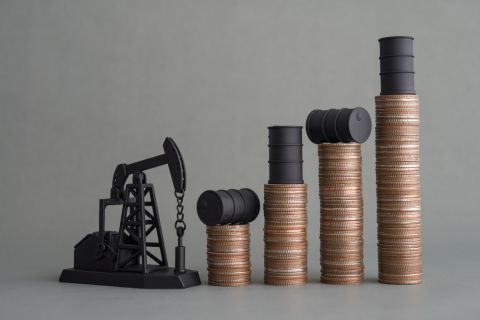PrairieSky Adds $6.4MM in Mannville Royalty Interests, Reduces Debt
PrairieSky Royalty said the acquisition was funded with excess earnings from the CA$83 million (US$60.75 million) generated from operations.
Ohio Utica’s Ascent Resources Credit Rep Rises on Production, Cash Flow
Ascent Resources received a positive outlook from Fitch Ratings as the company has grown into Ohio’s No. 1 gas and No. 2 Utica oil producer, according to state data.
US Refiners to Face Tighter Heavy Spreads this Summer TPH
Tudor, Pickering, Holt and Co. (TPH) expects fairly tight heavy crude discounts in the U.S. this summer and beyond owing to lower imports of Canadian, Mexican and Venezuelan crudes.
What's Affecting Oil Prices This Week? (April 22, 2024)
Stratas Advisors predict that despite geopolitical tensions, the oil supply will not be disrupted, even with the U.S. House of Representatives inserting sanctions on Iran’s oil exports.
The Latest
Exxon Mobil, Chevron See Profits Fall in 1Q Earnings
Chevron and Exxon Mobil are feeling the pinch of weak energy prices, particularly natural gas, and fuels margins that have cooled in the last year.
PrairieSky Adds $6.4MM in Mannville Royalty Interests, Reduces Debt
PrairieSky Royalty said the acquisition was funded with excess earnings from the CA$83 million (US$60.75 million) generated from operations.
Ohio Utica’s Ascent Resources Credit Rep Rises on Production, Cash Flow
Ascent Resources received a positive outlook from Fitch Ratings as the company has grown into Ohio’s No. 1 gas and No. 2 Utica oil producer, according to state data.
US Refiners to Face Tighter Heavy Spreads this Summer TPH
Tudor, Pickering, Holt and Co. (TPH) expects fairly tight heavy crude discounts in the U.S. this summer and beyond owing to lower imports of Canadian, Mexican and Venezuelan crudes.
What's Affecting Oil Prices This Week? (April 22, 2024)
Stratas Advisors predict that despite geopolitical tensions, the oil supply will not be disrupted, even with the U.S. House of Representatives inserting sanctions on Iran’s oil exports.
Renewed US Sanctions to Complicate Venezuelan Oil Sales, Not Stop Them
Venezuela’s oil exports to world markets will not stop, despite reimposed sanctions by Washington, and will likely continue to flow with the help of Iran—as well as China and Russia.
Paisie: Crude Prices Rising Faster Than Expected
Supply cuts by OPEC+, tensions in Ukraine and Gaza drive the increases.
EIA: Permian, Bakken Associated Gas Growth Pressures NatGas Producers
Near-record associated gas volumes from U.S. oil basins continue to put pressure on dry gas producers, which are curtailing output and cutting rigs.
US Orders Most Companies to Wind Down Operations in Venezuela by May
The U.S. Office of Foreign Assets Control issued a new license related to Venezuela that gives companies until the end of May to wind down operations following a lack of progress on national elections.
Tethys Oil Releases March Production Results
Tethys Oil said the official selling price of its Oman Export Blend oil was $78.75/bbl.













